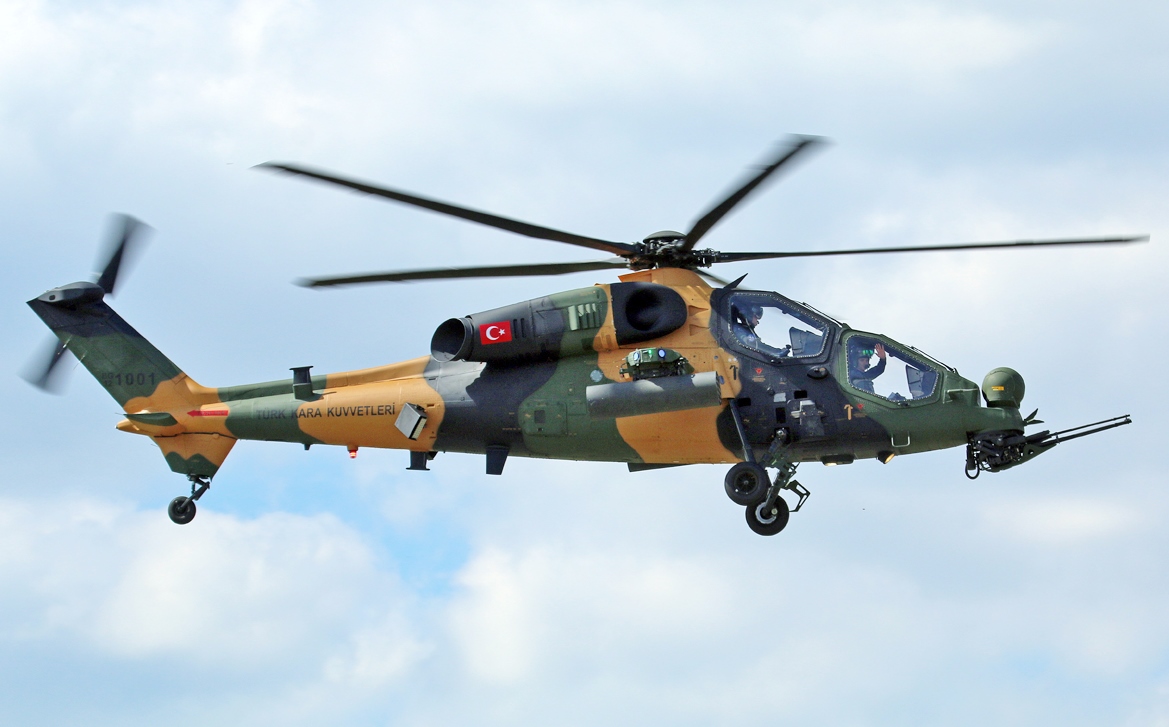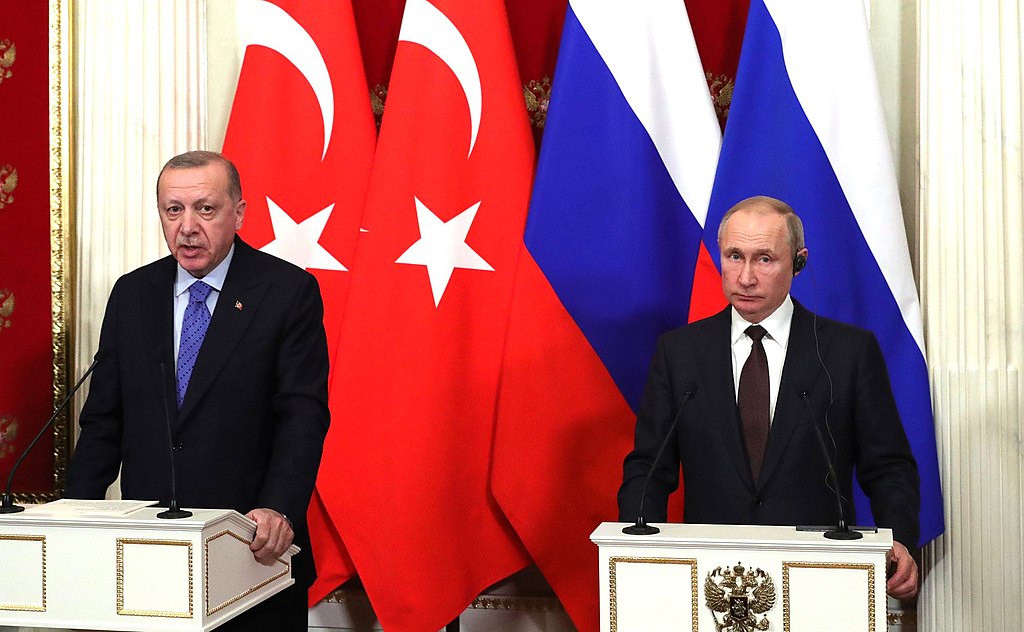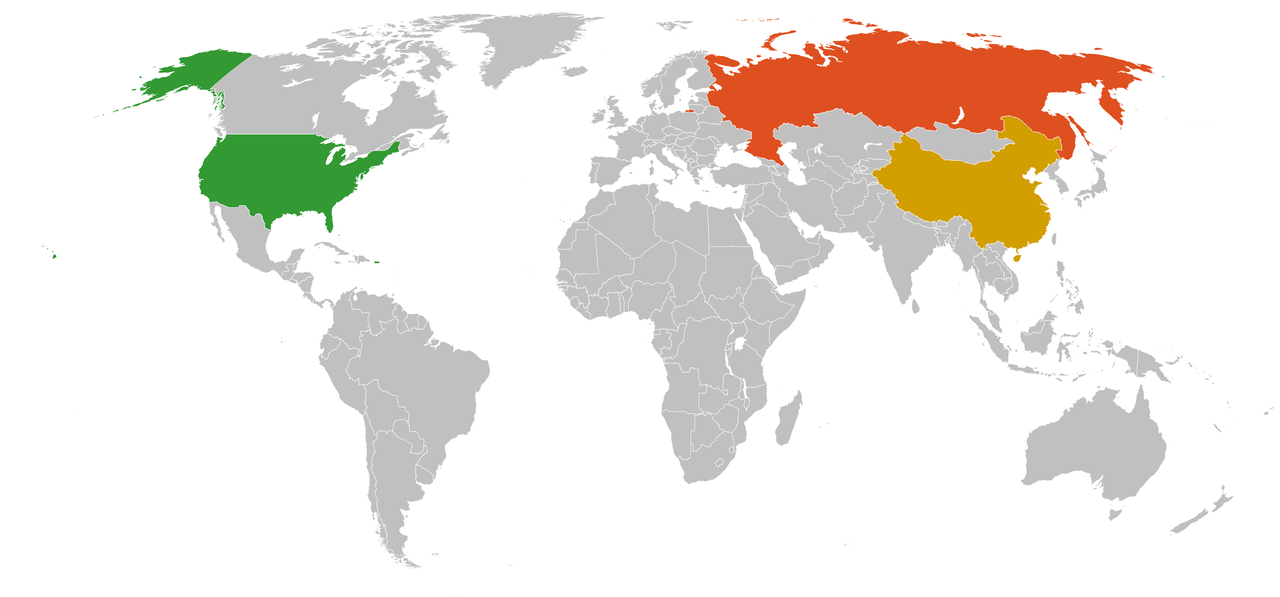
Turkey’s T-129 ATAK Helicopter.
“The US’s military embargo against Turkey has resulted in the loss of an important contract. Pakistan decided against the ATAK helicopters it was waiting to buy from TUSAŞ [Turkish Aerospace Industries]…”
In April 2021, the U.S. government started imposing the Countering American Adversaries Through Sanctions Act (CAATSA) on Turkey because of Turkey’s purchase of S-400 missile systems from Russia, making Turkey the first NATO member to be subject to these sanctions. The accompanying article from the pro-government Trhaber.com examines the first example of a Turkish defense contract with a third country, in this case Pakistan, falling through due to the CAATSA sanctions. The excerpt reports that Pakistan has cancelled a $1.5 billion contract to buy 30 of the type T-129 ATAK combat helicopters from Turkish Aerospace Industries. As the passage reports, American Honeywell made the helicopters’ turboshaft engine, so permission was needed from the United States for an export license, which could not be granted becaue of the CAATSA sanctions. The passage also notes Pakistan has now turned to China to buy their Z-10ME combat helicopters.
In addition to the defense deals with third parties falling through, like this example with Pakistan, the CAATSA sanctions also have other, less quantifiable negative impacts on the Turkish defense industry. As the second excerpt from an interview with a Turkish defense expert featured on Medyaskopetv.com via YouTube points out, the Turkish defense industry has effectively become “contaminated” or “blacklisted.” He predicts that any Western country, or any “non-Western country wanting to have good relations with the U.S.” will have major reservations about doing business with the Turkish defense industry. He notes this is not a technical issue, but a diplomatic one.
Source:
“ABD taş koydu, Pakistan ATAK helikopterinden vazgeçti! 1,5 milyar dolarlık anlaşma iptal (The USA prevented it, Pakistan [changed its mind] on the ATAK helicopter! The $1.5-billion-dollar deal is cancelled),” Trhaber.com (Turkish pro-government news site), 5 January 2022. https://www.trhaber.com/savunma/abd-tas-koydu-pakistan-atak-helikopterinden-vazgecti-15-milyar-dolarlik-h27804.html
The US’s military embargo against Turkey has resulted in the loss of an important contract. Pakistan decided against the ATAK helicopters it was waiting to buy from TUSAŞ [Turkish Aerospace Industries] for three years. The 1.5 billion dollar contract, which was the biggest export deal [in a single contract] for the Turkish defense industry, foresaw the sale of 30 combat helicopters to Pakistan.
But the T129 ATAK helicopters’ LHTEC CTW800-4A turboshaft engine is made by the American company Honeywell, so permission was needed from the US for an export license. Despite Ankara’s communication efforts, no official response was received from Washington. The attitude of the White House and Congress resulted in Turkey losing this 1.5 billion dollar contract.
The T-129 ATAK helicopters had been tested by the Pakistani Army multiple times in difficult terrains, and had successfully proven that it was the most effective combat helicopter in its class. The ATAK helicopter had garnered great admiration from Pakistani pilots, but are unable to reach [those pilots] due to the U.S. preventing the process.
…The sad development for the Turkish defense industry, was announced by Pakistani military spokesperson Babar Iftikar in a press briefing. Iftikhar said, in response to a question, that they have decided against the T-129 ATAK purchase from Turkey due to the delays, and have instead started talks with China to buy their Z-10ME combat helicopter. The U.S.’s blockage of Turkey enabled China to export more products.
Source: Işın Eliçin with Mevlütoğlu, “Trump yönetiminden Ankara’ya S-400 yaptırımları – Konuk: Arda Mevlütoğlu (S-400 sanctions to Ankara by the Trump Administration – Guest: Arda Mevlütoğlu),” Medyaskopetv.com via YouTube (reputable, independent Turkish media platform), 15 December 2020, https://www.youtube.com/watch?v=UPzR50sc6Fs
In a way, the Turkish Defense Industry Directorate (SSB) has been contaminated / blacklisted. In this case, other Western countries or companies, or any non-Western country that has or wants to have good relations with the U.S. and their institutions, may have reservations regarding doing business with Turkeys Defense Industry Directorate… This is not a directly technical issue, it’s more of a diplomatic issue.
Image Information:
Image: Turkey’s T-129 ATAK Helicopter.
Source: wiltshirespostter, via Wikimedia Common
https://commons.wikimedia.org/wiki/File:BG12-1001 (14662033896).jpg
Attribution: CC BY-SA 2.0



